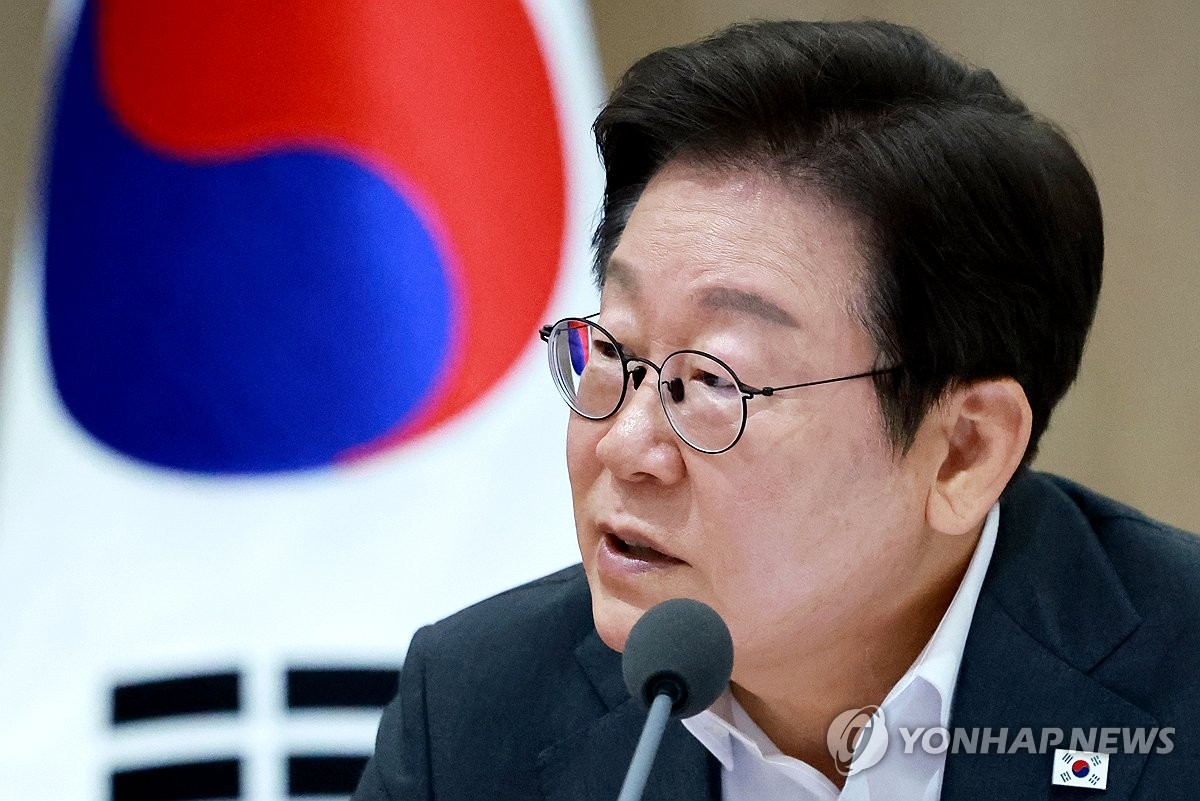(News Focus) S. Korea defends key sensitive areas in deal, though not treated as FTA partner: experts
By Song Sang-ho and Cho Joon-hyung
WASHINGTON, July 31 (Yonhap) -- South Korea has successfully defended a set of highly sensitive sectors in a trade deal with U.S. President Donald Trump's administration, though it was not given any special treatment as a free trade agreement (FTA) partner, experts said Thursday.
On Wednesday, Trump announced the deal under which the United States has agreed to lower "reciprocal" tariffs on Korea to 15 percent from the proposed 25 percent in return for Seoul's pledge to invest US$350 billion in the U.S. and purchase American liquefied natural gas or other energy products, among other things.
The deal capped grueling, monthslong negotiations that were set in motion after Trump announced "reciprocal" tariffs in April to address trade barriers to American exports. He has been using tariffs as a tool to generate federal revenue, pare down U.S. trade deficits and bolster domestic manufacturing.
"This new deal negates the value of our bilateral FTA where the U.S. and Korea eliminated almost all of their respective tariffs," Wendy Cutler, vice president of the Asia Society Policy Institute, said in her commentary. "As an FTA partner, Korea regrettably seems to have not received any special treatment."
However, Korea successfully resisted U.S. requests to further open its beef and rice markets -- two highly sensitive sectors, Cutler, a former negotiator of the Korea-U.S. FTA, added.

This file photo, released by Reuters, shows U.S. President Donald Trump delivering remarks on tariffs in the Rose Garden at the White House in Washington on April 2, 2025. (Yonhap)
Tom Ramage, an economic policy analyst at the Korea Economic Institute of America, struck a similar note, noting that this week's deal did not account for Korea's status as an FTA partner.
"A good deal may have afforded Korea a certain discount for this provision, for example on trade with autos," he said. "Still, other aspects of the deal allowed Korea to come away with wins for some of their domestic industries."
Noting Korea's argument that it would not additionally open its beef and rice markets, Ramage said that the deal allows Seoul to maintain a "red line" that its team had going into the trade negotiations, though confirmation is needed from the U.S. side on the matter.
The expert also took note of Seoul's commitment to creating a $200 billion fund for investments in key strategic sectors that are meant to reinforce economic security for both countries.
"The deal makes major commitments for U.S.-Korea collaboration on shipbuilding, as well as Korean investments in semiconductors and batteries in the United States," he said.
"If anything, the provisions made for Korean businesses through the investment fund will serve to bolster economic security between the two countries, and add strength to Korea's specialization in strategic industries."
Ramage anticipated that the full details of the deal, which may currently be a "preliminary framework," will be sorted out following a visit to the White House by South Korean President Lee Jae Myung. Trump has said that a summit with Lee will take place in the coming weeks.
"Once the terms of a fact sheet are released, it will likely provide clarity on the exact parameters of an agreement, including things like timeframe and full extent of sectors covered," he said.
"For example, unlike on the Korean side, there was no mention of digital services by the U.S. side, and it also remains to be seen to what extent security negotiations may factor into some form of a 'package deal.'"

This photo, taken on July 29, 2025, shows South Korean President Lee Jae Myung speaking during a Cabinet meeting at the presidential office in Seoul. (Yonhap)
Observers agreed that the conclusion of a trade deal cleared -- or at least eased -- a major source of tension between Seoul and Washington at a time of growing need for the two treaty allies to cooperate on a raft of issues, including deterrence against advancing North Korean threats.
"It is a positive development for the U.S.–ROK alliance that the trade deal was finalized ahead of the August 1 deadline and that South Korea secured the same tariff rate as other key U.S. allies, including those in Europe and Japan," Patricia Kim, a fellow at the John L. Thornton China Center and the Center for East Asia Policy Studies of the Brookings Institution, said.
"This also paves the way for a summit between newly elected President Lee and President Trump -- an important opportunity to signal continued strong commitment on both sides to the alliance."
sshluck@yna.co.kr
(END)
-
Prosecution drops charges against Chinese woman for attempting to trespass on BTS Jungkook's home
-
Prince Group stashes away over 90 bln won at Cambodian branches of S. Korean banks: lawmaker
-
S. Korea calls in Vietnamese defense attache over alleged sexual misconduct
-
(Movie Review) 'The First Ride' buckles up for more than joyride
-
Defense chief says Osan Air Base raid did not require U.S. consultations
-
Prosecution drops charges against Chinese woman for attempting to trespass on BTS Jungkook's home
-
Prince Group stashes away over 90 bln won at Cambodian branches of S. Korean banks: lawmaker
-
S. Korea calls in Vietnamese defense attache over alleged sexual misconduct
-
(5th LD) 64 nationals detained in Cambodia over alleged online scams return home, face probes
-
(Movie Review) 'The First Ride' buckles up for more than joyride
-
Prosecution drops charges against Chinese woman for attempting to trespass on BTS Jungkook's home
-
(LEAD) N. Korea says it tested 2 hypersonic projectiles, successfully hit target
-
(2nd LD) N. Korea says it tested 2 hypersonic projectiles, successfully hit target
-
(3rd LD) N. Korea fires 1st ballistic missiles in 5 mths ahead of Trump's trip to APEC summit
-
(LEAD) Woman sent to prosecutors for trespassing into parking lot of BTS Jungkook's home
